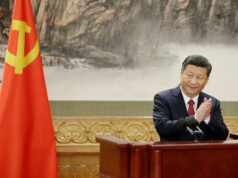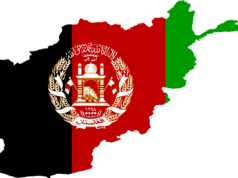
KUALA LUMPUR — Malaysia is discussing with chip companies based in the country whether they can absorb the impact of potential US tariffs on semiconductors, its trade minister said, as it looks to hedge against risks to its export-driven economy.
The Southeast Asian nation is home to a large semiconductor industry, including top US multinationals, and is one of the top exporters of chips to the US.
US President Donald Trump said in February that he intended to impose tariffs on semiconductors starting at “25% or higher,” though it is unclear when this decision could be made.
Malaysia would need to see the magnitude and quantum of the tariffs, Trade Minister Tengku Zafrul Aziz said in an interview with Reuters on Wednesday, as they could have a significant impact on its exports.
“We’re discussing with the companies… whether the tariffs will be absorbed by the consumers,” Mr. Tengku Zafrul said. “Exports will continue to happen but someone has to pay for the higher cost, whether it be the consumers or the companies that absorbs.”
He said the government has not discussed what it will do or whether it will provide financial support to offset tariffs.
Last year, Malaysia shipped $16.2 billion worth of chips to the US, accounting for nearly 20% of all US semiconductor imports, Trade data showed.
Mr. Tengku Zafrul also said Malaysian data centers were unlikely to be affected by export restrictions imposed on advanced chips by the previous US administration as demand for artificial intelligence (AI) remains strong.
Malaysia is fast becoming a major hub for data centers and AI factories in Southeast Asia, with investments from Microsoft, Google Amazon, and Oracle. However, this investment boom may be hampered by new restrictions adopted in the final days of Joseph Biden’s administration in January on the use of US chips overseas, in a bid to further restrict China’s access to AI semiconductors.
It remains unclear how Mr. Trump will enforce the new rules but the two administrations share similar views on the competitive threat from China.
Under the new rules, which are set to take effect in May, US cloud service providers, such as Microsoft, Google and Amazon, will be allowed to deploy only 50% of their total AI computing power outside the United States, and no more than 7% in Malaysia and other countries that have not been granted privileged access to US chips.
Mt. Tengku Zafrul said Malaysia’s data centers will not be impacted given the sector’s growth trajectory accounted for the limits of the restrictions.
The sector’s prospects will be further boosted by the fact that the big data center companies in Malaysia are US companies, he added.
“When we talk to the data center players, Microsoft, Google, AWS … there is not a concern because the allocation (under the restrictions) is adequate,” Mr. Tengku Zafrul said.
“There will be no impact on the growth in data centers because AI will be used by many.” — Reuters



